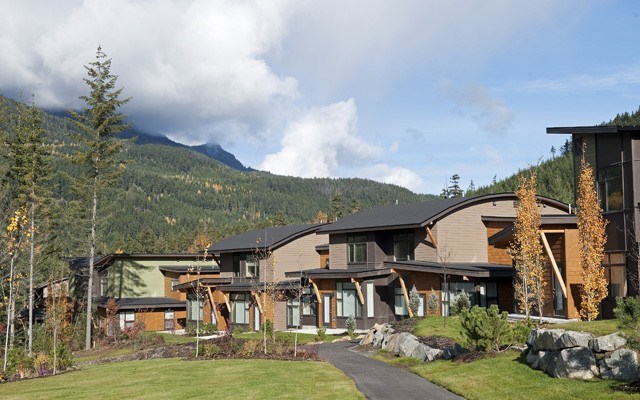Frustrated Cheakamus Crossing residents are demanding action from Whistler officials following the release of a study into the neighbourhood's complicated and costly heating system last week.
At last Tuesday's meeting of council, Whistler Development Corporation (WDC) head Eric Martin presented the results of a mechanical engineering study commissioned by the Cheakamus Crossing developer to determine if there were any major flaws plaguing the neighbourhood's District Energy System (DES), a closed ambient heating method that captures waste heat from Whistler's sewage treatment plant. Officials touted it as an energy-efficient, cost-effective system in the lead-up to the 2010 Olympics.
According to Martin, the study assessing the heating units in 19 homes found "no smoking gun" explaining the litany of technical issues residents have dealt with.
"There's no question (the DES) has been an obvious concern to a number of residents who had some unfortunate issues, but it doesn't seem to be anything on the design, installation or equipment side that was systemic," Martin said in a phone interview prior to last week's council meeting.
Those "unfortunate issues" have left some residents on the hook for thousands of dollars — over $10,000 in at least one case — to repair a system that even certified technicians have struggled to understand, said Cheakamus resident Denis Ebacher.
"The technician who was assigned for warranty work can't even fix it," he said. Western Technical Services were assigned to complete repair and maintenance work during the initial two-year warranty period. "If the guy who's doing the warranty work can't figure out what's wrong with your system, who will?"
Whether or not it found a smoking gun, there was no shortage of issues identified in the study by Vancouver engineering firm Integral Group. The report's author, Ken Newbert, wrote he was "disappointed" that no operating or maintenance manuals were provided to residents when they moved into the former Athlete's Village. The RMOW has since developed a Homeowners Quick Reference Guide and a Technical Service Guide, leaving residents wondering why they took so long to be released.
"This is six-plus years (later) and in the report it says they were critical to maintain our systems," said Cheakamus resident Tony Routley, who served as the neighbourhood rep throughout the study.
Newberg also raised concerns over the water samples taken in the study, with 87 per cent of the heating systems assessed showing pH samples out of spec, 66 per cent with total dissolved solids out of spec and 47 per cent of the conductivity samples out of spec. Technicians say it's critical the system be flushed on an annual basis to eliminate corrosive water — something Martin assured residents took place both before and after they took occupancy. But residents claim there's no evidence the flushes ever took place.
"We have asked and nobody has been able to provide proof, including the engineer (WDC) hired (for the study)," said resident John McGregor after last week's council meeting.
Conflicting directions between the user guide and technicians have also added to the confusion, Ebacher claimed.
"Martin and the manual mentioned that the domestic water in the hot water tank should be set at 52 degrees (Celsius), which means it will trip at 55," he said. "But Western Techinical Service... recommended a maximum of 48 degrees. Anytime it goes above 50, my system trips on a red screen. Now the recommended setting is 52 degrees, and there's no way I can set it to that."
Many residents have now switched to the DES' backup electrical system, preferring to pay higher monthly energy bills over dealing with the unreliable ambient heating system. What's more is if the heat pump fails, the electric backup often doesn't function, potentially leaving residents with no heat in the cold winter months.
"(Using) all electric in the winter is just not green, and that's what the original administration wanted back in '06," MGregor said. "This was going to be green and save everybody money, but it's gone red."
Now the neighbourhood is asking officials to take action to fix a system that has been beset by problems since Day 1.
"These (residents) have spent way too much money, there needs to be compensation and we need a resolution," said McGregor.
"There's no question it's a complicated system," Routley added. "If you listen to what (Martin) said, he had a lot of should've beens, probablys, maybes, it should work like this, it should do that. Well that doesn't cut it. It doesn't work like that. It's failing. He also said (the DES) was an experiment. Well, we're stuck with an experiment that's not working."




